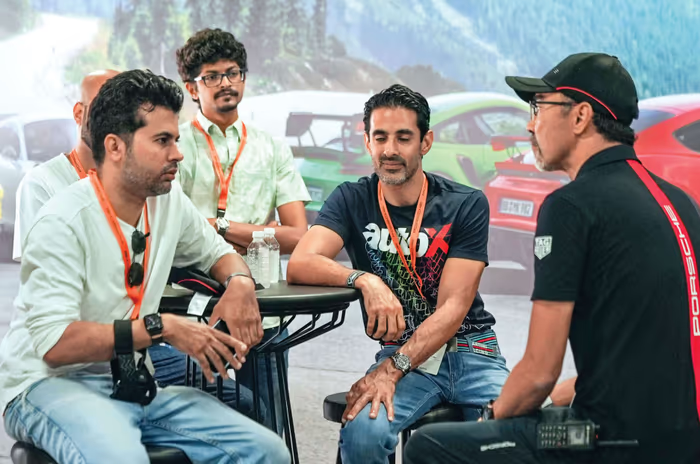10 mass market EVs have been through Autocar India’s stringent and accurate performance tests.
Due to the nature of an electric motor, EVs have all their torque available from 0rpm, which gives electric cars a great initial burst of acceleration. In fact, mass market EVs are usually more powerful and quicker than their ICE counterparts. Here we list out every mass market EV Autocar India has tested to see which is the quickest.
MG Comet
0-100kph: 23.87s
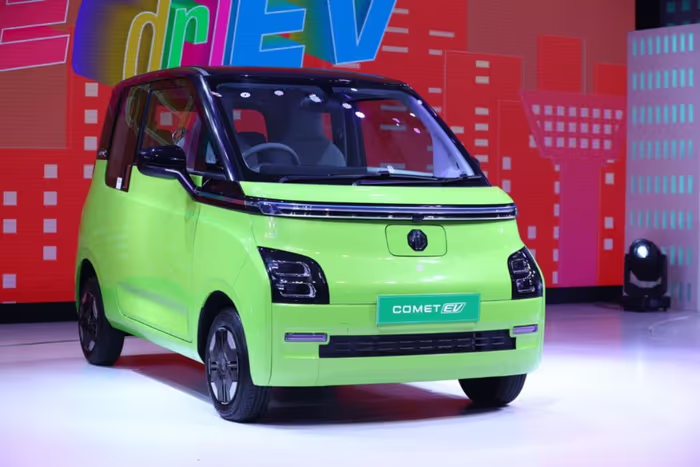
The MG Comet sits at the last spot, with a 0-100kph time of 23.87 seconds. However, its 0-60kph time of 7.6 seconds is closer to others on this list, showcasing that the smallest four-wheeler EV in India can keep up with urban traffic with ease. The Comet comes with a 17.3kWh battery that powers a 42hp and 110Nm rear axle mounted motor. The MG Comet EV is priced from Rs 7.36 lakh-9.86 lakh.
| MG Comet EV performance factfile | |
|---|---|
| Battery | 17.3kwh |
| Power | 42hp |
| Torque | 110Nm |
| Arara Range | 230km |
| 0-60kph | 7.6s |
| 0-100kph | 23.87s |
| 20-80kph (rolling acceleration) | 10.5s |
| 40-100kph (rolling acceleration) | 20.28s |
Tata Tiago EV
24kWh 0-100kph: 14.5s
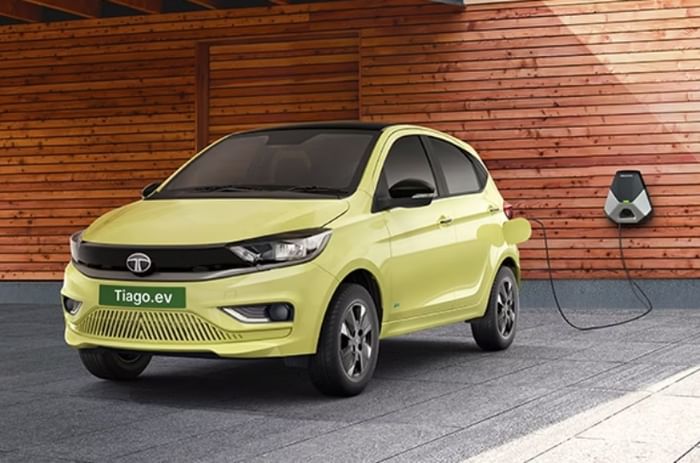
The Tata Tiago EV is available with two battery pack options, and we’ve tested the Long range version with the 24kWh battery. The Tiago EV LR gets a 75hp, 114Nm motor mounted on the front axle, and is priced between Rs 10.14 lakh and 11.14 lakh. Our tests saw the Long Range Tiago EV post a 0-60kph time of 5.93 seconds (quite close to Tata’s claimed time of 5.7 seconds), and a 0-100kph time of 14.5 seconds.
| Tata Tiago EV LR performance factfile | |
|---|---|
| Battery | 24kwh |
| Power | 75hp |
| Torque | 114Nm |
| Arara Range | 293km |
| 0-60kph | 5.93s |
| 0-100kph | 14.5s |
| 20-80kph (rolling acceleration) | 7.46s |
| 40-100kph (rolling acceleration) | 10.76s |
Tata punch evvt
35kWh 0-100kph: 13.62s
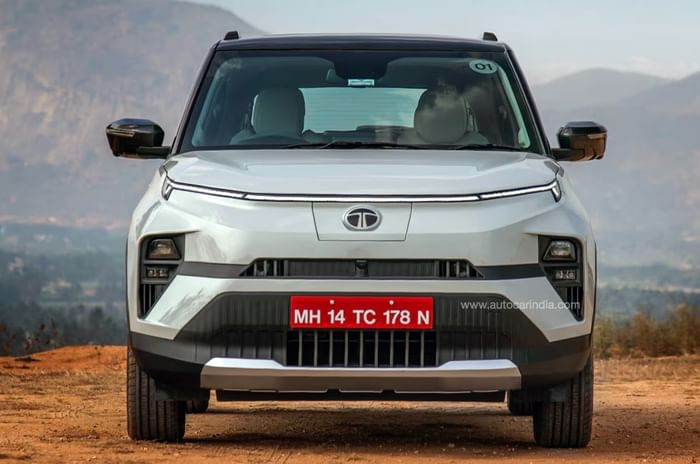
Like every Tata EV tested, the Punch EV also comes with two battery options, and we’ve tested the larger 35kWh version. The Tata punch evvt LR gets a front-mounted motor developing 122hp and 190Nm of peak torque, which enables the compact e-SUV to accelerate from 0-60kph in 6.14 seconds, and from 0-100kph in 13.62 seconds; our tested time is about 4.12 seconds slower than Tata’s claimed 0-100kph time of 9.5 seconds. The Punch EV LR’s price range is Rs 12.84 lakh-14.44 lakh.
| Tata Punch EV LR performance factfile | |
|---|---|
| Battery | 35kwh |
| Power | 122hp |
| Torque | 190Nm |
| Arara Range | 365km |
| 0-60kph | 6.14s |
| 0-100kph | 13.62s |
| 20-80kph (rolling acceleration) | 7.57s |
| 40-100kph (rolling acceleration) | 10.04s |
MG Windsor
38kWh 0-100kph: 9.79s
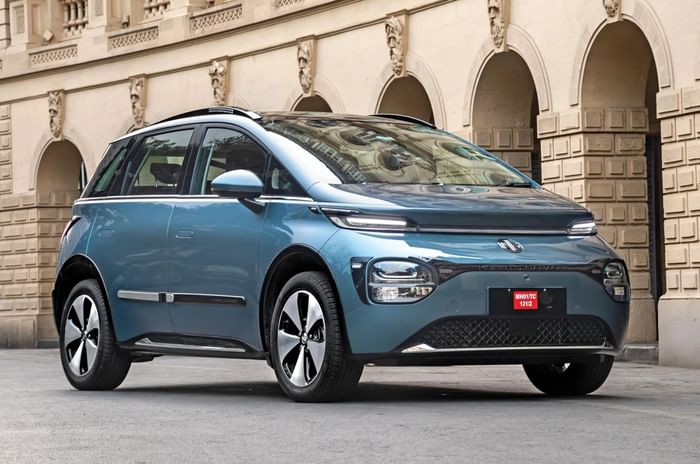
The MG Windsor with the smaller 38kWh battery (pro versions get a larger 52.9kWh battery) is the first EV here to record a sub-10-second 0-100kph time. It comes with a 136hp, 200Nm rear motor, which enables a 0-60kph time of 4.48 seconds, and a 0-100kph time of 9.79 seconds. The Windsor with the 38kWh battery is priced between Rs 14 lakh and Rs 16.15 lakh.
| MG Windsor performance factfile | |
|---|---|
| Battery | 38kwh |
| Power | 136hp |
| Torque | 200Nm |
| Arara Range | 332km |
| 0-60kph | 4.48s |
| 0-100kph | 9.79s |
| 20-80kph (rolling acceleration) | 5.22s |
| 40-100kph (rolling acceleration) | 6.92s |
Tata Nexon EV
45kWh 0-100kph: 9.77s
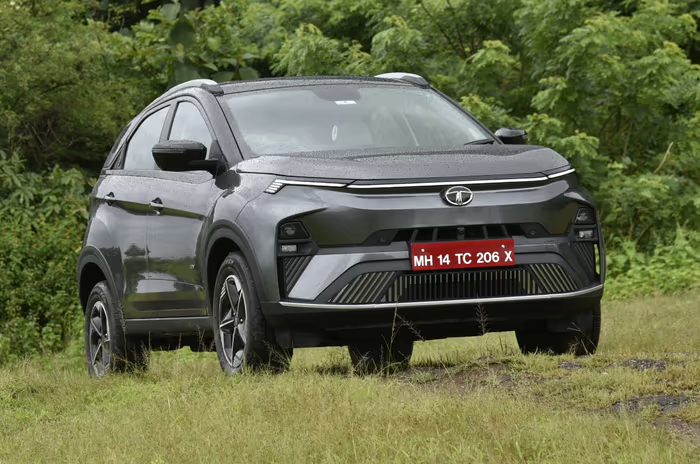
As is usually the case, we have tested the larger 45kWh battery version of the Tata Nexon EV; it is also available with a 30.2kWh battery, and called the ‘MR’. The Nexon EV 45, named for the 45kWh battery, comes with a front axle-mounted 144hp, 215Nm motor, with Tata claiming a 0-100kph time of 8.9 seconds. However, out tests saw the Nexon EV 45 record a 0-100kph time of 9.77 seconds, 0.87 seconds slower than the claimed time. Prices for the Nexon EV 45 range between Rs 13.99 lakh and Rs 17.19 lakh, including the Red Dark variants.
| Tata Nexon EV 45 performance factfile | |
|---|---|
| Nexon EV 45 | |
| Battery | 45kWh |
| Power | 144hp |
| Torque | 215nm |
| Arara Range | 489km |
| 0-60kph | 4.66s |
| 0-100kph | 9.77s |
| 20-80kph (rolling acceleration) | 5.32s |
| 40-100kph (rolling acceleration) | 6.68s |
Tata Curvv Ev
55kWh 0-100kph: 9.25s
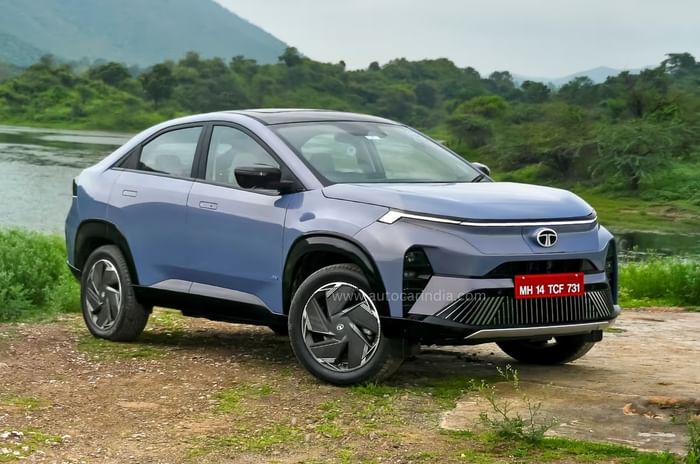
Like the with rest of the Tata EVs, the Curvv EV also gets two battery pack options, and we’ve tested the larger of the 55kWh battery version, which gets a front axle-mounted 167hp, 215Nm motor. Tata claims a 0-100kph time of 8.6 seconds, though our tests show the Curvv EV 55 sprints from 0-100kph in 9.25 seconds. Tata Curvv Ev 55 prices currently range between Rs 19.25 lakh and Rs 22.24 lakh, including the Dark variants.
| Tata Curvv EV 55 performance factfile | |
|---|---|
| Battery | 55kwh |
| Power | 167hp |
| Torque | 215nm |
| Arara Range | 502km |
| 0-60kph | – |
| 0-100kph | 9.25s |
| 20-80kph (rolling acceleration) | 4.92s |
| 20-80kph (rolling acceleration) | 6s |
Mahindra XUV400
0-100kph: 8.93s
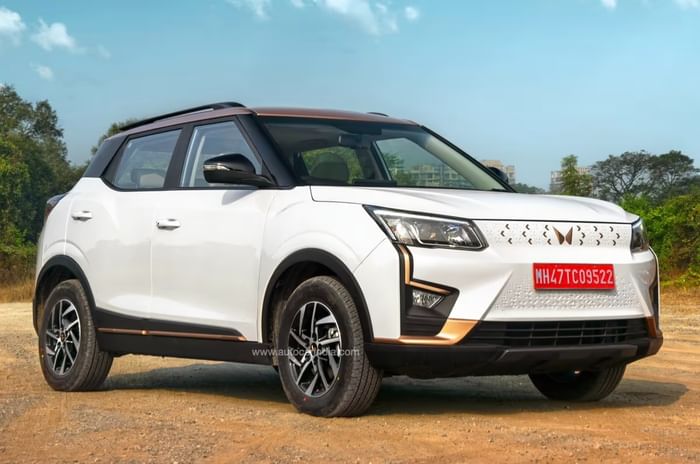
While the Mahindra XUV400 was available with two battery options, it is only the larger 39.5kWh option that is now available. The XUV400 is priced at Rs 17.49 lakh, and comes with a 150hp, 310Nm front motor, which enables a claimed 0-100kph time of 8.3 seconds, though our tests showed it record a time of 8.93 seconds, just 0.63 seconds short of Mahindra’s claim.
| Mahindra XUV400 performance factfile | |
|---|---|
| Battery | 39.5kwh |
| Power | 150hp |
| Torque | 310Nm |
| Arara Range | 456km* |
| 0-60kph | 4.63s |
| 0-100kph | 8.93s |
| 20-80kph (rolling acceleration) | 4.78s |
| 40-100kph (rolling acceleration) | 6.03s |
MG ZS EV
0-100kph: 8.42s
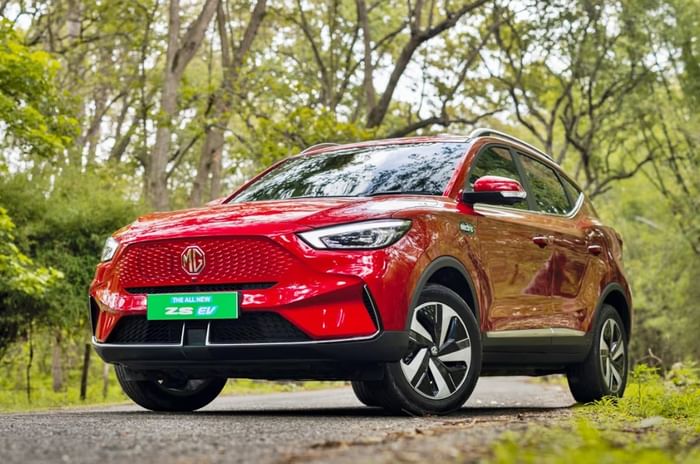
The MG ZS EV is the most powerful all-electric car from the British brand currently available. The ZS EV gets a 50.3kWh battery, which powers a front axle-mounted motor that produces 177hp and 280Nm of torque. Our real world performance tests showed the ZS EV reach 60kph from standstill in 4.37 seconds, while the 0-100kph sprint took 8.42 seconds. The MG ZS EV is currently priced between Rs 17.99 lakh and Rs 20.50 lakh.
| MG ZS EV performance factfile | |
|---|---|
| Battery | 50.3kwh |
| Power | 177hp |
| Torque | 280Nm |
| Arara Range | 466mm |
| 0-60kph | 4.37s |
| 0-100kph | 8.42s |
| 20-80kph (rolling acceleration) | 4.64s |
| 40-100kph (rolling acceleration) | 5.46s |
Mahindra Xev 9E
79kWh 0-100kph: 7.45s
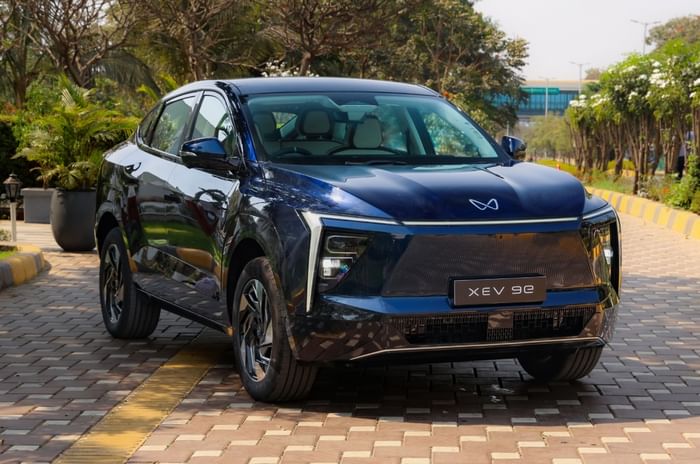
Mahindra’s current flagship EV has two battery pack options – 59kWh and 79kWh – and we’ve managed to test the larger battery version. The top-spec XEV 9e Pack Three – only available with the 79kWh battery – has a 286hp, 380Nm rear motor, with Mahindra claiming a 0-100kph time of 6.8 seconds. However, our performance tests showed the Mahindra Xev 9E 79kWh version sprints to 60kph in 4.14 seconds, and to 100kph in 7.45 seconds; 0.65 seconds slower than Mahindra’s claim. The XEV 9e Pack Three costs Rs 30.50 lakh.
| Mahindra XEV 9e Pack Three performance factfile | |
|---|---|
| Battery | 79kwh |
| Power | 286hp |
| Torque | 380nm |
| Arara Range | 656km |
| 0-60kph | 4.14s |
| 0-100kph | 7.45s |
| 20-80kph (rolling acceleration) | 4.17s |
| 40-100kph (rolling acceleration) | 4.61s |
Mahindra BE 6
79kWh 0-100kph: 7.1s
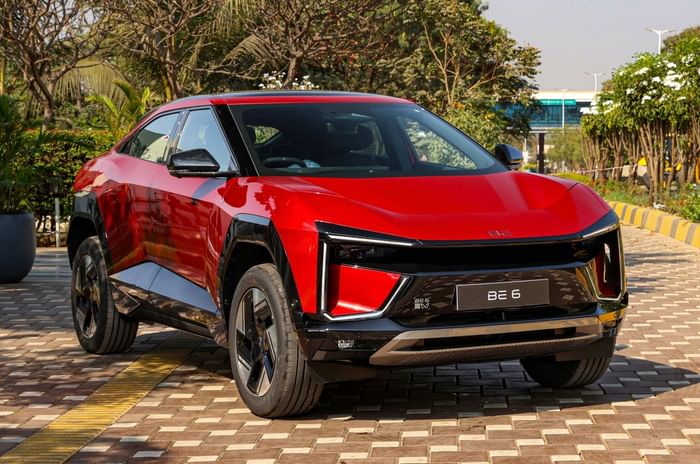
Mahindra’s answer to the Hyundai Creta Electric shares its battery options and motor with the larger XEV 9e. Naturally, the smaller Mahindra BE 6 is quicker than the coupe-SUV, with a claimed 0-100kph time of 6.7 seconds. In our tests, the BE 6 Pack Three (the only variant available with the 79kWh battery) recorded a 0-60kph time of 4 seconds, and a 0-100kph time of 7.1 seconds (0.4 seconds short of the claimed time), making it the quickest mass market EV we have tested so far. The Mahindra BE 6 Pack Three is priced from Rs 26.90 lakh.
| Mahindra BE 6 Pack Three performance factfile | |
|---|---|
| Battery | 79kwh |
| Power | 286hp |
| Torque | 380nm |
| Arara Range | 683km |
| 0-60kph | 4s |
| 0-100kph | 7.14s |
| 20-80kph (rolling acceleration) | 4.03s |
| 40-100kph (rolling acceleration) | 4.46s |
Also see:
Tata Harrier EV price, variants, features explained














